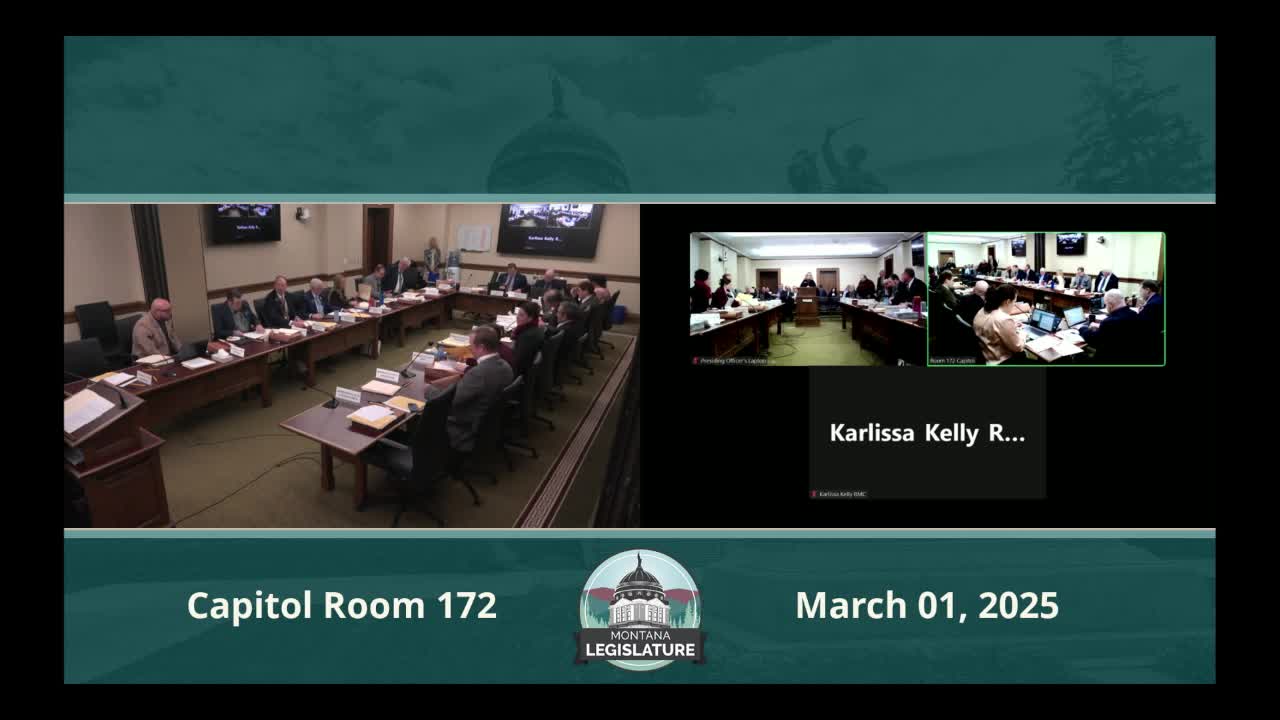House bill 718 would create state Office of Reentry to coordinate services for justice-involved Montanans
Get AI-powered insights, summaries, and transcripts
Subscribe
Summary
Representative Kerry Seekins Crow proposed HB 718 to establish an Office of Reentry Services within the Department of Labor and Industry; proponents said coordinated case management and three initial FTEs paid from state special revenue would reduce recidivism and improve employment outcomes.
Representative Kerry Seekins Crow opened the House Business and Labor Committee hearing on House Bill 718 by describing the bill as “an act establishing an office of reentry services in the Department of Labor and Industry.” She told the committee the measure grew from years of work with reentry stakeholders and aims to reduce recidivism by coordinating services for people as they leave secure settings.
Commissioner Sarah Swanson of the Montana Department of Labor and Industry testified in support. “This is a good bill,” Swanson told the committee, and she outlined the department’s anticipated start-up plan: an Office of Reentry inside the workforce services division staffed initially with approximately three full-time employees and an estimated year‑one state special revenue cost of $510,773 drawn from the employment security account. Swanson said the fiscal assumptions include roughly $95,000 in office expenses and $125,000 for direct grants or program support to pay for training and services for participants.
Proponents from corrections and higher education described operational benefits. Scott Eichner, rehabilitation programs chief at the Department of Corrections, called the measure “workforce development as a team sport.” Angela Dewolfking of the Office of the Commissioner of Higher Education said coordinated planning and flexible entry points for incarcerated students — such as Second Chance Pell and prison education — improve employment outcomes and lower recidivism. Amy Sings-in-the-Timber of the Montana Innocence Project cited research that comprehensive reentry programs can reduce recidivism by 20 to 30 percent and noted the economic case: reentry services costing $5,000–$10,000 per person can yield employment and tax revenue that offset incarceration costs.
Representative Seekins Crow said the Office would connect housing, corrections, workforce, public health and higher education and focus on the critical “off‑paper” period when recidivism spikes. Proponents urged due pass but no committee vote was recorded that day; the hearing closed with the sponsor thanking attendees and inviting continued partnership.
If enacted as described in testimony, the office would rely on the Department of Labor’s employment security account for initial funding and would require administrative rule‑making to define grant processes and programmatic details.
